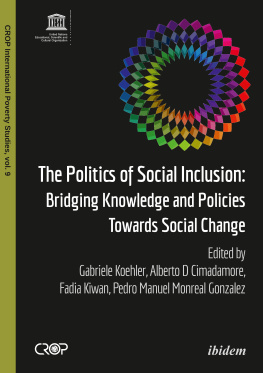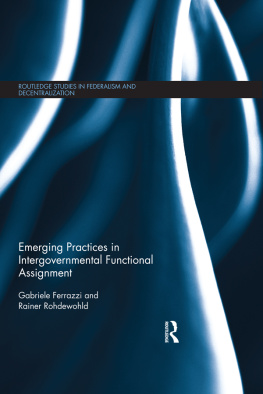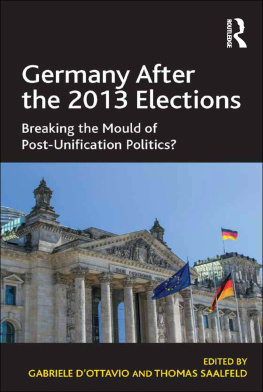
The Emotional Politics of Research Collaboration
Research collaboration in the form of networks, projects, and centers has become one of the dominant modes of engaging in research, especially funded research, across all academic domains. However, there has been little research on the processes of such collaborations, particularly their affective dimensions. These, as this volume demonstrates and as researchers know well, are highly important, yet mostly not directly engaged with when scientists work together, even though they are experienced by every-body involved.
This volume is the first to consider questions such as how the naming of projects impacts on their accompanying affect-scapes, the policing or disciplining of emotions in research collaborations, their accompanying tensions and how these might be managed, and the challenges to trust between scientists that such collaborations present. Drawing on theories of affect and literature on collaboration, as well as on the contributors experiences of being involved in large-scale research projects, the volume also more importantly deals directly with some of the key emotions that occur during research collaborations such as blame, elation, frustration, alienation, and belonging, and suggests some ways in which one might engage productively with the affective dimensions of research collaboration.
Gabriele Griffin holds the Anniversary Chair in Womens Studies at the University of York.
Annelie Brnstrm-hman is Professor in Literary Studies at the Department of Culture & Media Studies at Ume University.
Hildur Kalman is Associate Professor in Philosophy of Science and Senior Lecturer at the Department of Social Work at Ume University.
Routledge Advances in Research Methods
| E-Research Transformation in Scholarly Practice Edited by Nicholas W. Jankowski |
| The Mutual Construction of Statistics and Society Edited by Ann Rudinow Stnan, Heidi Mork Lomell, and Svein Hammer |
| Multi-Sited Ethnography Problems and Possibilities in the Translocation of Research Methods Edited by Simon Coleman and Pauline von Hellermann |
| Research and Social Change A Relational Constructionist Approach Sheila McNamee and Dian Marie Hosking |
| Meta-Regression Analysis in Economics and Business T. D. Stanley and Hristos Doucouliagos |
| Knowledge and Power in Collaborative Research A Reflexive Approach Edited by Louise Phillips, Marianne Kristiansen, Marja Vehvilinen, and Ewa Gunnarsson |
| The Emotional Politics of Research Collaboration Edited by Gabriele Griffin, Annelie Brnstrm-hman, and Hildur Kalman |
The Emotional Politics of Research Collaboration
Edited by Gabriele Griffin, Annelie Brnstrm-hman, and Hildur Kalman
First published 2013
by Routledge
711 Third Avenue, New York, NY 10017
Simultaneously published in the UK
by Routledge
2 Park Square, Milton Park, Abingdon, Oxon OX14 4RN
Routledge is an imprint of the Taylor & Francis Group, an informa business
2013 Taylor & Francis
The right of Gabriele Griffin, Annelie Brnstrm-hman and Hildur Kalman to be identified as the authors of the editorial material, and of the authors for their individual chapters, has been asserted in accordance with sections 77 and 78 of the Copyright, Designs and Patents Act 1988.
All rights reserved. No part of this book may be reprinted or reproduced or utilised in any form or by any electronic, mechanical, or other means, now known or hereafter invented, including photocopying and recording, or in any information storage or retrieval system, without permission in writing from the publishers.
Trademark Notice: Product or corporate names may be trademarks or registered trademarks, and are used only for identification and explanation without intent to infringe.
Library of Congress Cataloging-in-Publication Data
The emotional politics of research collaboration / edited by Gabriele Griffin, Annelie Brnstrm-hman, Hildur Kalman.
pages cm.(Routledge advances in research methods; 7)
Includes bibliographical references and index.
1. ResearchPsychological aspects. 2. Feminism and science. I. Griffin, Gabriele, editor of compilation. II. Brnstrm-hman, Annelie, editor of compilation. III. Kalman, Hildur, editor of compilation.
Q180.55.P75E46 2013
001.401'9dc23
2012049155
ISBN13: 978-0-415-83250-2 (hbk)
ISBN13: 978-0-203-42744-6 (ebk)
Typeset in Sabon
by IBT Global.
To All Our Research Collaborators
Contents
GABRIELE GRIFFIN, WITH ANNELIE BRNSTRM-HMAN AND HILDUR KALMAN
PART I
Emotion and the Life Cycle of Research Collaboration
GABRIELE GRIFFIN
HILDUR KALMAN
ANN HMAN
HILDUR KALMAN
PART II
Key Affects in Research Collaboration
GABRIELE GRIFFIN
ANDERS JOHANSSON, EVA SDERBERG, AND SIV FAHLGREN
ANNELIE BRNSTRM-HMAN
MARIA JNSSON AND ANNA RDSTRM
EVA SDERBERG
The editors would like to acknowledge, first, the support in the form of a large five-year research grant of the Swedish Research Council for the Challenging Gender research program at the University of Ume, Sweden, 20072011. This grant enabled a large number of gender researchers to come together over a period of five years to co-conduct research on gender in relation to health, violence, normalization, emotions, and democracy and justice. The Emotional Politics of Research Collaboration was conceived as part of that research program; it articulates our experiences of and thinking about both the emotional politics of that collaboration and other joint research projects we have been part of.
Second, the editors would like to thank all the participants in that research program. Their interactions, reflections, discussions, and theoretical considerations inspired and informed this volume. This also goes for Britta Lundgren, Nira Yuval-Davis, Naomi Scheman, Philomena Essed, Raewyn Connell, Margaret Davies, Ellen Annandale, and all the other people with whom we dialogued and multi-logued during that time in connection with this volume.
Finally, the editors would like to thank Max Novick, Jennifer Morrow, and the team at Routledge for their support and enthusiasmwe have very much enjoyed working with you all.
Gabriele Griffin, with Annelie Brnstrm-hman and Hildur Kalman
EMOTIONS AND RESEARCH COLLABORATION
The affective turn in the social and cultural sciences (Ahmed 2004, 2010; Harding and Pribram 2009; Gregg and Seigworth 2010; Liljestrm and Paasonen 2010) has enabled the discussion of those intangible dimensions of engagement that everybody recognizes as key to shaping everyday interaction and processes but which, outside of particular knowledge domains such as psychoanalysis and certain branches of philosophy, often remain unaddressed because they appear to contradict the still celebrated prototype of the rational subject of the Enlightenment. Nowhere is that more evident than in the sciences where the objective, neutral observer represents one ideal scientist and the mad genius anotherboth constructed in terms of models of (un)reason, with little or no regard to the affective dimensions that shape their attitudes, behaviors, and science. In the context of research, the most cherished domain of science, understood as










